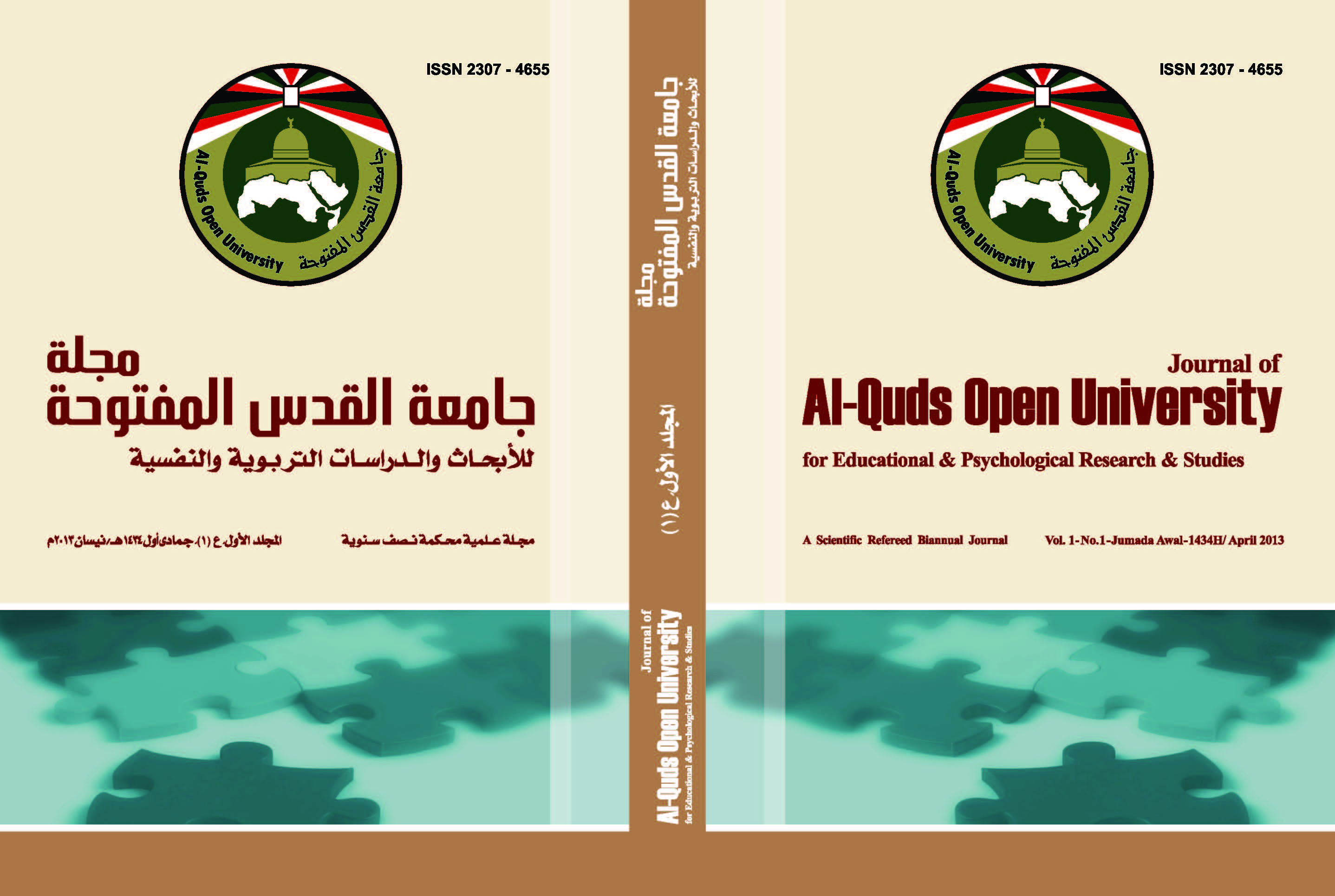The Impact of the Cognitive/ Behavioral Program to Reduce Anxiety among Children Diagnosed with Thalassemia
Keywords:
Children Diagnosed with Thalassemia, Anxiety, Cognitive/ Behavioral ProgramAbstract
The study aimed at exploring the impact of the Cognitive/ Behavioral
Program to reduce anxiety among a sample of children with Thalassemia in
Ramallah and Al- Bireh Province in Palestine.
The final sample of the study consisted of (30) children, who suffer from
Thalassemia. These selected from students infected with Thalassemia in
Ramallah and Al- Bireh Province. Their ages were between (8- 12) years
and the total number of people with Thalassemia was (56) children, the
anxiety measure was applied on them, and they were divided into two groups
randomly: the experimental group of (15) children, and the control group
consisted of (15) children. The Cognitive/ Behavioral Program was applied
to reduce the anxiety on the experimental group only, for a month and a half
of (16) training sessions.
The statistical analysis of data indicates the following results:
1. There are statistically significant differences at level (α = 0. 05) between
the average ranks of the experimental and the control groups on the
anxiety scale in favor of the experimental group referred to the Cognitive/
Behavioral Program.
2. No statistically significant differences were found at the anxiety scale
for the experimental group between males and females referred to the
Cognitive/ Behavioral Program.
3. No statistically significant differences were found at level (α = 0. 05)
between the average degrees of the experimental group of children on
the anxiety scale at the follow – up and distance measures referred to the
Program.
In the light of the study results, a number of educational recommendations
were provided and presented to the concerned authorities, in order to
reduce the anxiety among children with Thalassemia and to improve their
standardsDownloads
Published
How to Cite
Issue
Section
License
- The editorial board confirms its commitment to the intellectual property rights
- Researchers also have to commit to the intellectual property rights.
- The research copyrights and publication are owned by the Journal once the researcher is notified about the approval of the paper. The scientific materials published or approved for publishing in the Journal should not be republished unless a written acknowledgment is obtained by the Deanship of Scientific Research.
- Research papers should not be published or republished unless a written acknowledgement is obtained from the Deanship of Scientific Research.
- The researcher has the right to accredit the research to himself, and to place his name on all the copies, editions and volumes published.
- The author has the right to request the accreditation of the published papers to himself.







2.png)






_2.png)

